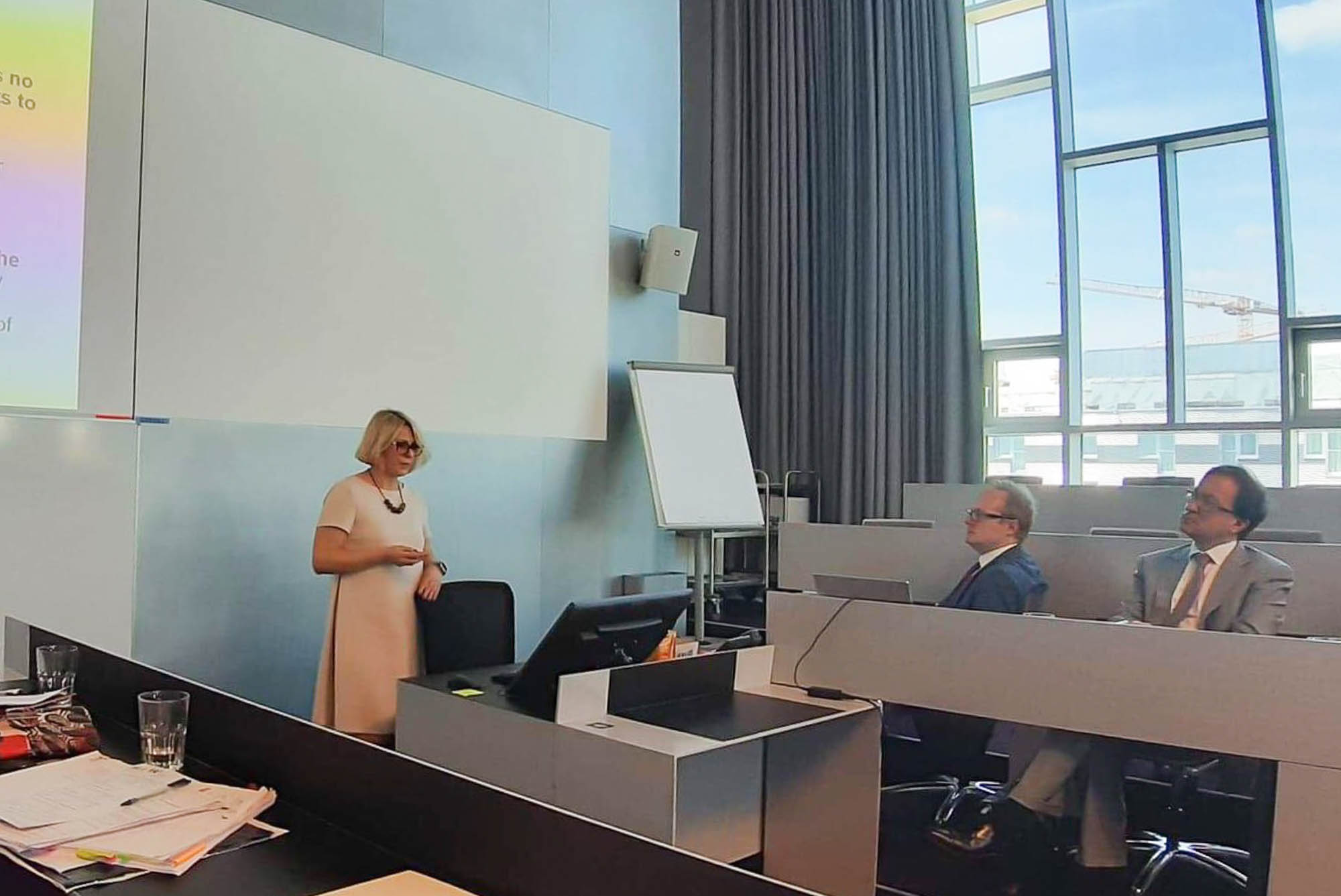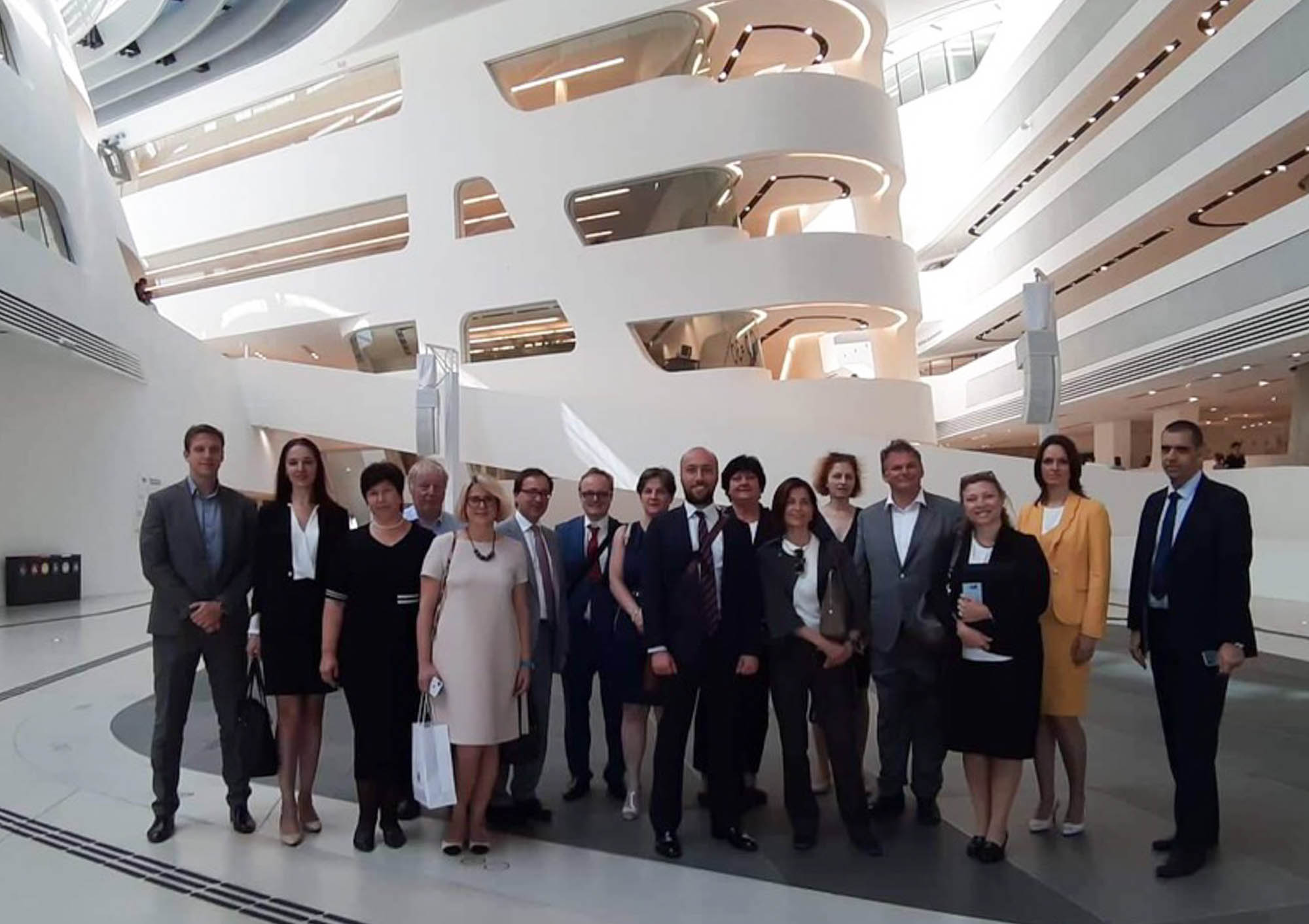Contact center of the Ukrainian Judiciary 044 207-35-46

Judge of the Grand Chamber of the Supreme Court Olena Kibenko presented her speech at round table “Development of Corporate Law in Central, South and Eastern Europe and the European Model Company Act (EMCA)” on 21 June 2019 in Vienna University of Economics and Business.
While opening the round table, Professor of the University of Luxembourg Pierre-Henri Conac remarked that the European Model Company Act (EMCA) was a unique legal instrument of European corporate law unification. In 2007 Theodor Baums, Professor of Goethe University Frankfurt decided to create such a tool; however, the development of the EMCA took more than 10 years. The working group included the best corporate law scientists from the EU countries.
The EMCA text was presented in 2017 in Rome. According to its significance and contents it is analogous with the Treaty of Rome, by which in 1957 the European Economic Community (presently – the EU) was founded, but in the sphere of corporate law. The unique nature of the EMCA consists of the fact that unlike more consistent instruments of regulation – directives and orders, it permanently renews and reflects the last trends of the development of corporate law in the EU member states. Besides, corporate law of other countries – the USA, European countries, which are not the EU members, particularly, Ukraine – also has impact on the EMCA. Thus, scientists and practitioners from all countries are involved into the discussion of the EMCA, working meetings are held repeatedly to search for effective tools of regulation of companies’ activity in the EU. Professor Conac underlined that this round table was one of such working meetings.

In her presentation Olena Kibenko told about innovations of the Law of Ukraine “On Limited and Additional Liability Companies” and their correlation with the EMCA approaches. The presentation generated rich discussion among the round table participants. Scientists from Austria, Hungary, the Czech Republic, Serbia, Greece and Turkey also told about new approaches in the sphere of corporate law.
The round table participants noted that the EMCA was a useful instrument for approaching and unification of corporate law of different European countries; it could be applied in case law, since each EMCA norm included a comprehensive comment as for existent issues, the description of regulation of relevant relations in different EU countries, the aim of implementation of the recommended regulation into the EMCA.
Follow the link https://papers.ssrn.com/sol3/papers.cfm?abstract_id=2929348, to see the text of the EMCA and to get more information about it.
